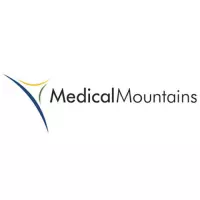Tuttlingen – Simulation, robotics and extended reality formed the core elements to make the motto “Taking Health to a new level” a reality: The 15th Innovation Forum Medical Technology in Tuttlingen provided numerous impulses and ideas on how and where the industry can develop further . A new record was reached with more than 500 participants.
A CareObot passes microphones on the main stage. In the “Trial Area”, the service robot “HoLLiE” maneuvers a wheelchair around the room. Those interested can slip into the Noac exoskeleton, which relieves surgeons of their tiring work. More than 50 specialist lectures cover, among other things, virtual human models for physiological-biomechanical product testing, training on laparoscopes with VR glasses and haptic feedback, and additively manufactured bone replacement materials. What until recently had to be viewed as the distant future manifests itself in the Tuttlingen town hall as the new present.
Innovation needs impulses at all levels
Yvonne Glienke, managing director of MedicalMountains GmbH, opened the forum together with Jürgen Noailles, CEO of TechnologyMountains eV since this summer. Despite all her enthusiasm for inventing, she was aware of the situation of the medical technicians in the room: “How much time and energy can you still put into innovations?” Yvonne Glienke was clear about very little, given the growing bureaucracy and regulations. Therefore, there is a need for commitment at the political level to “improve the framework conditions for you as a medical technology industry” – but also platforms for getting to know trends, identifying promising technologies and finding suitable partners for implementation. And that's exactly what the day was about.
The conversations in the hallways, at tables and in the matchmaking lounge gave the forum the background noise. The more than 80 companies and institutions in the accompanying exhibition were sought-after dialogue partners, including at the joint stand of this year's partner state Saxony-Anhalt. The spectrum was multi-faceted, because no matter how advanced a medical product may be, manufacturing machines, connectors, electronic components, packaging, sterilization services or supporting digital tools will continue to be needed in the future.
Medical devices have a new role
However, the role of medical devices is changing. You are more required than ever as a data provider, said Prof. Dr. Dirk Wilhelm made it clear in his keynote speech. The senior physician at the Clinic and Polyclinic for Surgery at the Rechts der Isar Clinic (TU Munich) drew a picture of model-based medicine that uses simulation to ensure patient-specific care. He therefore saw it as urgent to close the gap between the real and virtual world. Currently, data is collected “sequentially, analogously, by hand.” What is needed, however, is the continuous digital recording of all information from everyday clinical practice in order to be able to structure, interpret and ultimately classify it into an overall architecture - in order to reach that level beyond knowledge. the Prof. Dr. Dirk Wilhelm described it as “wisdom”. On this basis, treatment plans could be refined, the conditions for precision medicine created - or, more mundanely, the waiting times of patients in the wards could be reduced.
Clinic staff use VR glasses to troubleshoot
Prof. Dr. also pointed out that not everything is currently going according to plan in the hospitals. Miriam Rüsseler, head of the “Frankfurt Interdisciplinary Simulation Training”. Medical errors are one of the most common causes of death - due to time pressure, stress and a lack of staff and communication. It is all the more important to promote situational awareness, i.e. “not only to be focused on the work, but also to look at the surroundings”. This is what the “Virtual Room of Error” or “Horror” does. Equipped with VR glasses, the clinic employees detect discrepancies in a digital image of treatment rooms before they become dangerous for patients - for example, that according to the medical records, the right leg should be treated, but the left is being prepared. Such training could be taken further: Users could train their situational awareness when dealing with medical devices, said Prof. Dr. Miriam Rüsseler the “virtual door” for manufacturers.
Preparations for the 16th edition are underway
This recorded more than 500 participants





